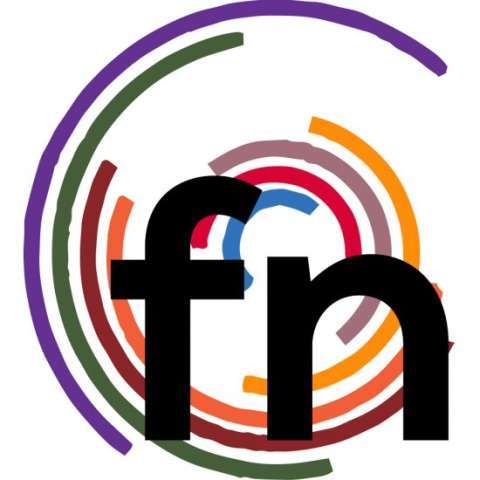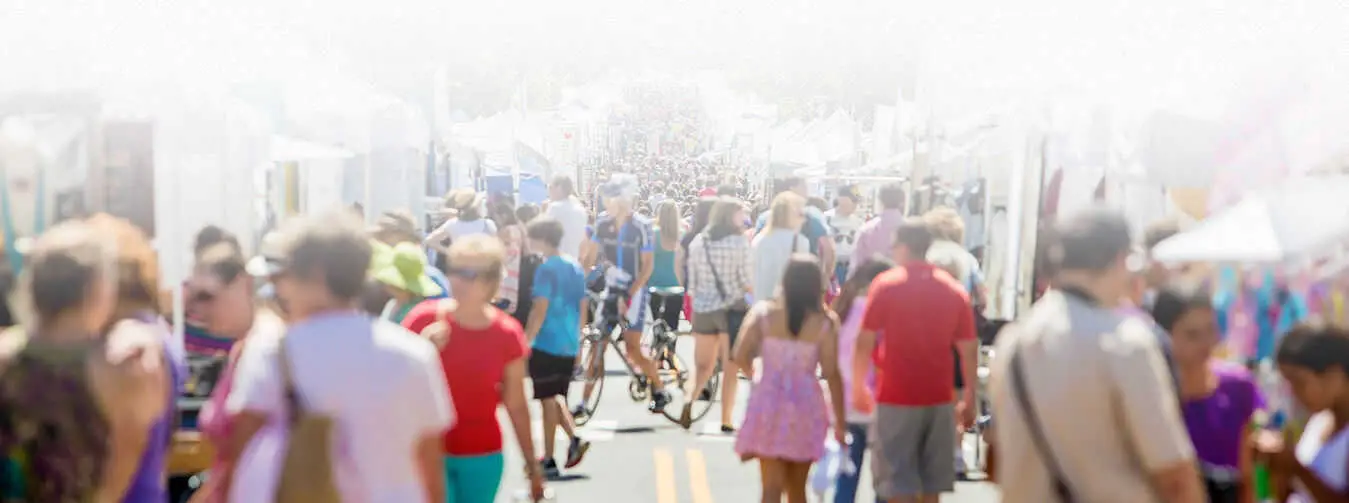Being prepared before presenting your art to the public is what makes art shows mangeable and fun to attend. I've got some tips to help you prepare for exhibiting and talking about your art at a show. Grab a notepad and let's dig in!
1. Prepare for common questions
Grab a beverage and write (writing vs typing helps you retain information) brief, friendly answers in your notepad to questions that might be asked.

image via eddie howell
• How did you make this?
• Is there a story behind this painting?
• How long did it take you to paint this?
• Can I get this with a different frame?
• What's the difference between printmaking and a print I'd buy at Target?
• Do you have a website where I can look at more, or buy something online?
Often, folks are just being conversational and friendly, so answer the question with an economy of words, and then ask something back. Volley the chit-chat.
2. Swap art supplies for presentation supplies
Discussing art with a family member, or writing about it on a blog isn't the same as standing with your art among hundreds of strangers at a venue where the whole premise is to sell your art. So shiny-up your presentation skills:
Have business cards or postcards with your contact information handy, and offer them (casually) to folks you've chatted with.
Bring a blank notebook with a couple of pens, and ask the people you've had conversations with if they'd like to be added to your mailing list, so you can send a postcard or an email about future shows, or studio sales (make sure you can read their email or postal address before they walk away).
Wear a name badge. Even though your art might have a label next to it, or a sign close by, art festivals and exhibits are an overwhelm of visual information to attendees. Wear a name tag, and when they ask "Is this your art?" just smile and answer, "Yes it is. My name is _______. What's yours?" Shake hands and welcome them.
Keep an inventory sheet close by. List each piece you're exhibiting, with the title, media, price and outside dimensions. If a patron wonders if your latest painting will fit over their dresser, you can jot down dimensions on the back of a business card with the title & media of the art, and then offer to collect their contact info to follow up with them later.
Snap photos of your booth set up, along with the environment around the art festival and noteworthy characteristics of the space where you're exhibiting. If you return to the show next year, you can review your set up, and if you need booth photos to apply to other shows, you'll have them. You can also write a blog or social media post about your experiences which might be interesting to folks too far away to attend, and informative to other artists considering that show.
3. Don't judge
Consider the idea that selling your art is more of a service than a job. Patrons – people who love and collect art—are searching for something to line the walls of their nest.
The attendees combing an art exhibit could be looking for a deeply personal piece that moves them, or they could be trying to match a new couch. Don't judge. You'll meet folks looking for the latest color trends, or a gift for friends getting married, or a landscape with a path to remind them of childhood walks taken with a recently lost grandparent.
Whether they're trying to match wallpaper, or looking for a commissioned portrait, help them distill what they find appealing by asking questions about what they already have, what style they're drawn to, and which subjects catch their eyes, etc. Being interested is easier (and kinder) than being interesting.
4. Remember to not take it personally
Your job, as an artist standing next to the work you're offering for sale, is to assist buyers with their search for something to add to their collection. Making the art is all about you, but selling your work shifts the focus away from you, to the patron.
You're in the service of matchmaking; getting your art in front of a collector searching for your style. If your art doesn't speak to someone surveying your work, and it's not their jam—there's no penalty box. It's simply not a match. That's not a reflection of your work; it's a reflection of their tastes, and you should never personalize that. Keep searching and showing till you get your art in front of people who do love it.
5. Don't reinvent the wheel
Talking about your art is much easier if you have some talking points ready, and you've thought about the mechanics of it beforehand. Roleplay art sale conversations with a family member so you can shake your jitters off. Take a friend to an art festival, and pay attention to how each artist you visit interacts with you. What did you like, and what was less engaging? Take some notes over kettle corn and an iced coffee afterwards.
Really, the worst case is that you don't sell... but you won't have time to be discouraged, because you'll already be busy researching and finding the folks looking for your art. And at each subsequent show, you'll be honing your skills at presenting your art till you're an art exhibit superhero!
Author's Website: belindadelpesco.com


